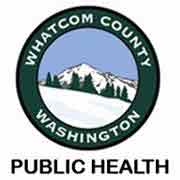The Whatcom County Health Department updated their investigation into the Shiga toxin-producing E. coli O157:H7 outbreak associated with the Milk Makers Fest at the fairgrounds in Lynden, Washington. Investigators are calculating case counts “based on lab-confirmed infection with E. coli O157:H7 and physician-diagnosed cases of hemolytic uremic syndrome (HUS).”
 The latest update, posted May 18, 2015, states that there are 22 confirmed cases. Ten people have been hospitalized. No one has died. Four people have developed HUS. Tests from other sick people are being investigated.
The latest update, posted May 18, 2015, states that there are 22 confirmed cases. Ten people have been hospitalized. No one has died. Four people have developed HUS. Tests from other sick people are being investigated.
The investigation now includes environmental samples taken from the Northwest Fairgrounds, since all of the ill people attended the Milk Makers Fest between April 21 and 23, 2015; helped with the event between April 20 and April 24, 2015; or were close contacts of ill persons who attended the event.
Most of those sickened are children. Children under the age of 5 are most seriously affected with HUS, a complication of an E. coli infection. More than 1,000 primary school children from all school districts in Whatcom County attended the event on the days specified.
A common source or sources, whether it’s environmental or food-based, has not been determined. Officials think it will take several more weeks to collect and analyze evidence collected.
If you or your child attended the Milk Makers Fest in April, or has had close contact with someone ill who did, and have symptoms of an E. coli O157:H7 infection, see your doctor as soon as possible. The illness manifests two to eight days after exposure.
The symptoms of an E. coli infection include nausea, fever, and diarrhea that may be bloody and/or watery. If this infection is treated with antibiotics it can develop into hemolytic uremic syndrome, a serious complication that can cause kidney failure and death. And an E. coli O157:H7 infection can progress to HUS all on its own.
The symptoms of hemolytic uremic syndrome include fever, abdominal pain, pale skin, fatigue, irritability, small, unexplained bruises, bleeding from the nose and mouth, and decreased urination. Anyone suffering those symptoms should immediately seek emergency medical care.
The notice did state that the outbreak appears to be over, but secondary cases of those in contact with ill persons may still increase. If you are caring for someone with an E. coli infection, always wash your hands thoroughly with soap and water after caring for them. Wash your hands before and after preparing food for yourself and others. Stay home from school or work if you have a diarrheal illness, and check with your employer before returning to work.




